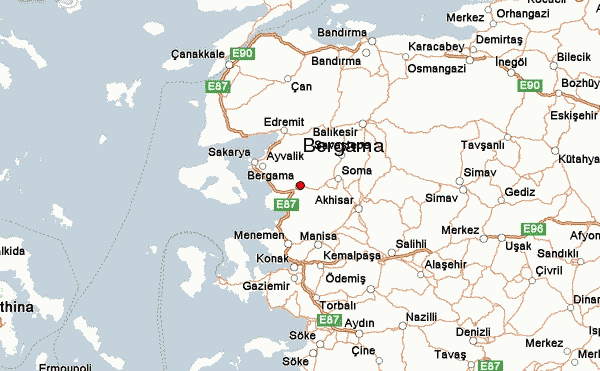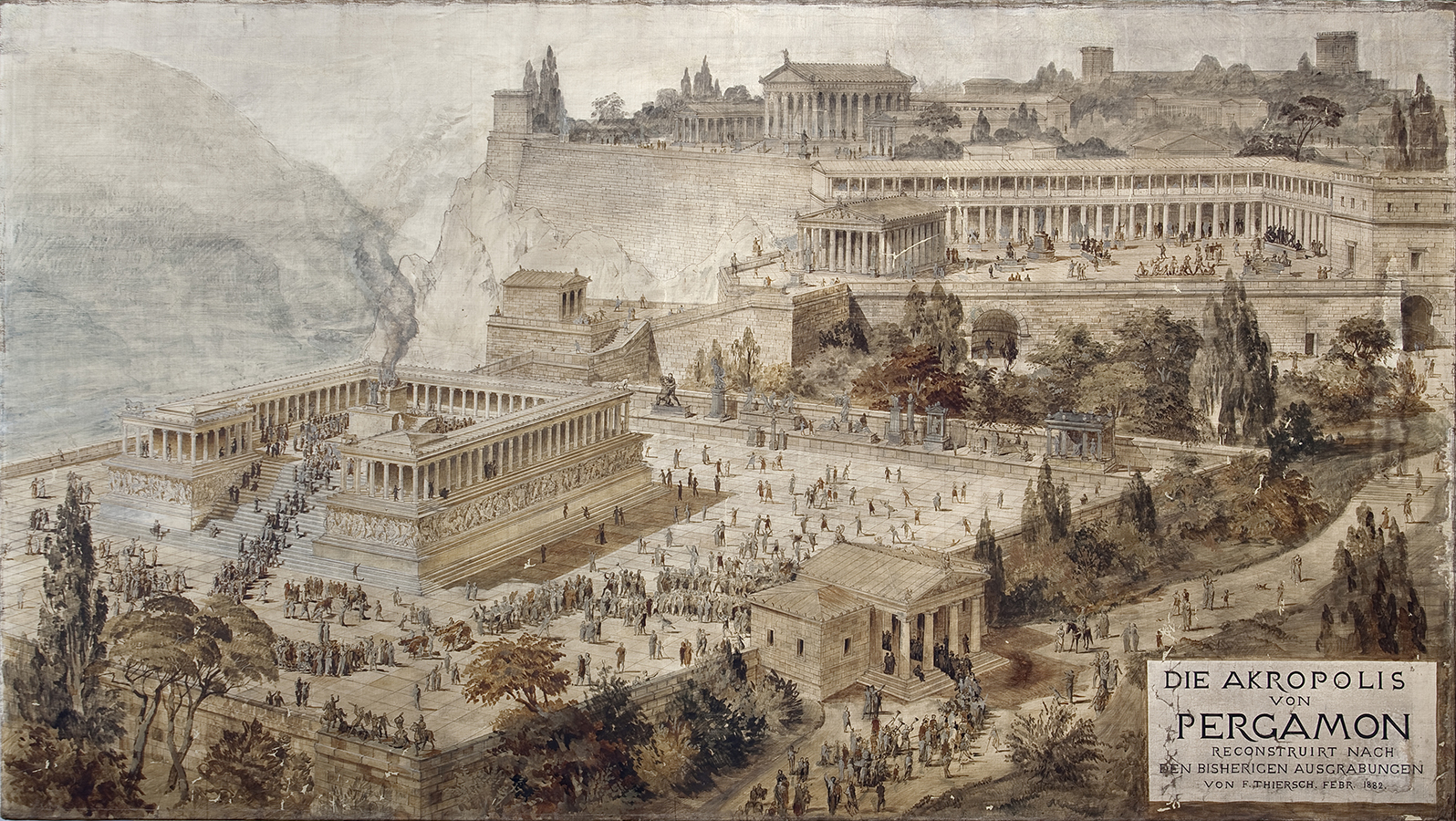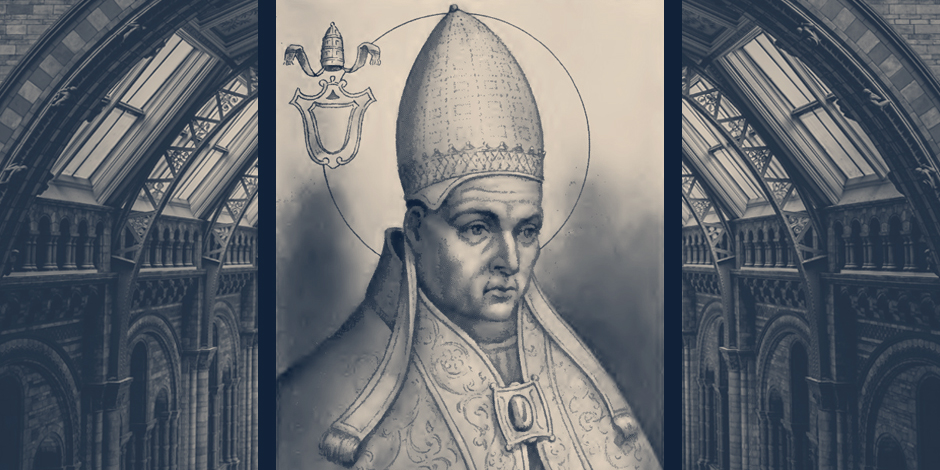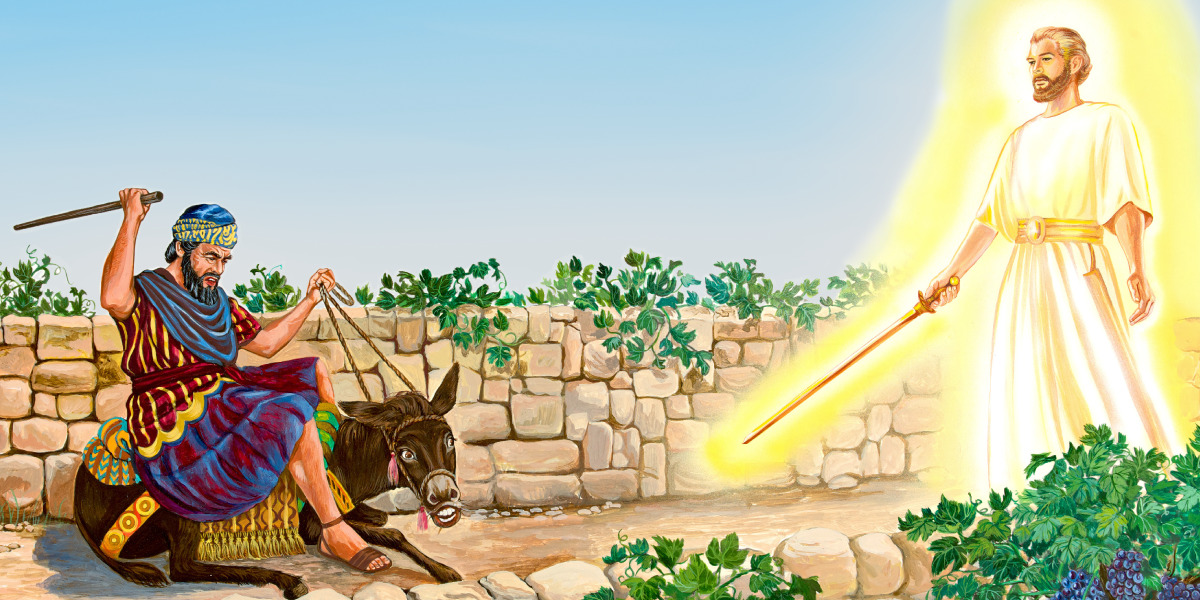Apocalypse | 013 | To the Angel of Pergamos
To the third church, the Alpha and Omega, Jesus Christ made his address. From the previous post, we have established that the second church era ended at the beginning of Constantine the Great's rule as Emperor of Rome. He ended Christian persecution and legalized the free practice of Christianity in the empire, which later became the state's religion.
During the time of John the Apostle, Pergamos was the capital city of the Roman province of Asia Minor, the region in which the seven churches are located. In addition to providing government for the region, the city was a religious center. Beautiful temples were erected in honor of four pagan gods: Zeus, Dionysus, Athena, and Asclepius. Asclepius was the mythological god of healing, and it is interesting to note that the serpent-entwined staff associated with him continues today as a symbol for modern medical arts. The books were of parchment that was first used here; hence, the word 'parchment,' derived from the name of the town Pergamos. Of the structures which adorned the city, the most renowned was the altar of Zeus, which was 40 ft. in height, and also one of the wonders of the ancient world (International Standard Bible Encyclopedia, 1939, “Pergamos; Pergamum”).

Its rival city, Smyrna, was a commercial center, and as it increased in wealth, it gradually became the political center. Later, when it became the capital, Pergamos remained the religious center. Located in modern Turkey, Pergamos is now called Bergama. Among the ruins of the ancient city, which were excavated by the German government from 1879 to 1886, one can see the base of the altar of Zeus, a theater, the agora, a gymnasium, and several temples.
Jesus began his counsel through the language of war, "These things saith he which hath the sharp sword with two edges..." (Revelation 2:12) This sword is the Word of God (Ephesians 6:17, Hebrews 4:12) The Word of God is under attack in this church.
Jesus adds, " I know thy works, and where thou dwellest, even where Satan’s seat is..." What is Satan's seat? Let us look into the Bible to unlock this symbol.
The word of the Lord came to Ezekiel saying, "Son of man, say unto the prince of Tyrus, Thus saith the Lord GOD; Because thine heart is lifted up, and thou hast said, I am a God, I sit in the seat of God, in the midst of the seas; yet thou art a man, and not God, though thou set thine heart as the heart of God..." (Ezekiel 28:2)
To sit in the seat of Satan is to do as Satan did, and that was exalting himself as God. Said the prophet Isaiah, "How art thou fallen from heaven, O Lucifer, son of the morning! how art thou cut down to the ground, which didst weaken the nations! For thou hast said in thine heart, I will ascend into heaven, I will exalt my throne above the stars of God: I will sit also upon the mount of the congregation, in the sides of the north: I will ascend above the heights of the clouds; I will be like the most High." (Isaiah 14:12-14)
Throughout the course of history, monarchs like the kings of Babylon, Tyre, Persia, Greece, and Rome have exalted themselves to the position of gods and wanted to be worshipped. Like Daniel and his friends, people were persecuted and put to death when they disobeyed the laws of this religion.
Throughout the course of history, monarchs like the kings of Babylon, Tyre, Persia, Greece, and Rome have exalted themselves to the position of gods and wanted to be worshipped. Like Daniel and his friends, people were persecuted and put to death when they disobeyed the laws of this religion.
The first ecumenical council of this new Christian movement was called by the emperor in 325 AD at the city of Nicea. They recognized Sylvester, the Bishop of Rome as the first Bishop of the Empire. Under Sylvester, the organization of the church was formed upon the model of the organization of the state. Years later, Emperor Valentinian I enacted a law making the bishop of Rome judge of other bishops.
A council in Rome, A. D. 378, enlarged the Bishop of Rome to the powers of judging, and petitioned the emperor Gratian to exempt the bishop of Rome from all civil jurisdiction except that of the emperor alone; to order that he be judged by none except a council, or the emperor direct; and that the imperial power should be exerted to compel obedience to the judgment of the bishop of Rome concerning other bishops. Emperor Gratian granted part of their request, and it was made to count for all.
In 380 CE, the emperor Theodosius issued the Edict of Thessalonica, which made Christianity, specifically Nicene Christianity, the official religion of the Roman Empire. (Archibald Bower, History of the Popes)
Innocent I, Bishop of Rome from 402 AD - 417 AD, asserted that the superior dignity of the bishopric of Rome was derived from Peter, whom he designated the Prince of the Apostles; and that in this respect it took precedence 158 of that of Antioch because that in Rome Peter had accomplished what he had only begun in Antioch. He demanded the absolute obedience of all churches in the West, because, as he declared, Peter was the only apostle that ever preached in the West; and that all the churches in the West had been founded by Peter, or by some successor of his. (Henry H. Milman, History of the Popes)
Bishop Celestine of Rome (422 AD - 432 AD) plainly declared in a letter: "As I am appointed by God to watch over His Church, it is incumbent upon me everywhere to root out evil practices, and introduce good ones in their room, for my pastoral vigilance is restrained by no bounds, but extends to all places where Christ is known and adored." (Archibald Bower, History of the Popes)
Paul says that he will oppose and will exalt himself over everything that is called God or is worshiped, so that he sets himself up in God’s temple, proclaiming himself to be God. (2 Thessalonians 2:4)
These are just a few accounts from history that point to the seat of the Bishop of Rome as Satan's seat. To see the full article, click here.
God's design for the early church was to have a decentralized form of administration with Him as its Head and King. When Israel arrived and settled in Canaan from Egypt, God divided them into their respective tribes to decentralize them. Apart from the priesthood, God assigned the system of judges and chose prophets to be the voice of his will among the tribes. He was to be the King and Ruler of this system of Theocracy.
However, the people of Israel wanted to be like the neighboring nations and cried for a king. this displeased Samuel; so he prayed to the Lord. And the Lord told him: “Listen to all that the people are saying to you; it is not you they have rejected, but they have rejected me as their king. As they have done from the day I brought them up out of Egypt until this day, forsaking me and serving other gods, so they are doing to you. Now listen to them; but warn them solemnly and let them know what the king who will reign over them will claim as his rights.”
Samuel told all the words of the Lord to the people who were asking him for a king. He said, “This is what the king who will reign over you will claim as his rights: He will take your sons and make them serve with his chariots and horses, and they will run in front of his chariots. Some he will assign to be commanders of thousands and commanders of fifties, and others to plow his ground and reap his harvest, and still others to make weapons of war and equipment for his chariots. He will take your daughters to be perfumers and cooks and bakers. He will take the best of your fields and vineyards and olive groves and give them to his attendants. He will take a tenth of your grain and of your vintage and give it to his officials and attendants. Your male and female servants and the best of your cattle and donkeys he will take for his own use. He will take a tenth of your flocks, and you yourselves will become his slaves. When that day comes, you will cry out for relief from the king you have chosen, but the Lord will not answer you in that day.”
Samuel told all the words of the Lord to the people who were asking him for a king. He said, “This is what the king who will reign over you will claim as his rights: He will take your sons and make them serve with his chariots and horses, and they will run in front of his chariots. Some he will assign to be commanders of thousands and commanders of fifties, and others to plow his ground and reap his harvest, and still others to make weapons of war and equipment for his chariots. He will take your daughters to be perfumers and cooks and bakers. He will take the best of your fields and vineyards and olive groves and give them to his attendants. He will take a tenth of your grain and of your vintage and give it to his officials and attendants. Your male and female servants and the best of your cattle and donkeys he will take for his own use. He will take a tenth of your flocks, and you yourselves will become his slaves. When that day comes, you will cry out for relief from the king you have chosen, but the Lord will not answer you in that day.”
But the people refused to listen to Samuel. “No!” they said. “We want a king over us. Then we will be like all the other nations, with a king to lead us and to go out before us and fight our battles.”
When Samuel heard all that the people said, he repeated it before the Lord. The Lord answered, “Listen to them and give them a king.”
When Samuel heard all that the people said, he repeated it before the Lord. The Lord answered, “Listen to them and give them a king.”
God kept the state and the priesthood separate to preserve the sacred oracles encased within the temple. Israel began to learn the lesson of its mistake when the kings themselves led the whole nation into idolatry and rebellion against God, resulting in the split of the tribes, and the loss of the ten tribes of the north, and the captivity of the remaining two.
God was trying to teach them the folly of vesting rulership into the hands of a man; a responsibility that only God himself can handle. The early Christian church followed a decentralized form of government until it was decided by church councils, endorsed by emperors, that the Bishop of Rome was to be head and judge over all churches. Historical accounts have proven that it was the Popes, united with Kings and Emperors, who committed some of the most heinous acts against humanity.
The word Greek word "Antipas" is made up of two words: "anti" and "pas".
- Anti = against
- Pas = father
The only other person in the Bible with this name is Herod I, who was the tetrarch in the province of Judea during the birth of Jesus in Bethlehem. Herod Antipas was instrumental in the assassination attempt of the baby Jesus which lead to the slaying of all the children that were in Bethlehem, and in all the coasts thereof, from two years old and under. (Matthew 2:16) The actions of Herod signify that he was against Christ and His Father. The book of Revelation depicted this event as such, "...and the dragon stood before the woman which was ready to be delivered, for to devour her child as soon as it was born. And she brought forth a man child, who was to rule all nations with a rod of iron: and her child was caught up unto God, and to his throne." (Revelation 12:4-5) Under Herod's tetrarchy, the Roman Empire was the instrument that the Dragon [Satan] used in his assassination attempt.
But Jesus said that Antipas was his faithful witness. Which father was Antipas against? During the time of Constantine, the bishops of the main centers of Christianity, like Alexandria, Antioch, Constantinople, have slowly adopted the title "papa" or "pope". The faithful witnesses of Christ were people whose wills and minds were not bent to the ever-growing compromises arising within the religiopolitical nature of Christianity after Constantine's conversion. We have seen from above how the Bishop of Rome managed to climb to the top of the hierarchy with the help of the Roman Emperors.
Apart from this, Jesus pointed out another major compromise in the church, "There are some among you who hold to the doctrine of Balaam, who taught Balak to entice the Israelites to sin so that they ate food sacrificed to idols and committed sexual immorality." (Revelation 2:14) Once against we see the marriage of church and state, which usually end up in the destruction of God's people.
Balaam, as we read in Numbers chapter 22, was a prophet of God who compromised his position and joined forces with the king of Moab against the Israelites of the exodus. According to John, the central doctrine of Balaam is to teach the king how to entice or deceive the Israelites into idolatry and fornication. The doctrine of the Nicolaitans mentioned here by John was a similar one to that of Balaam. (Read more about the Nicolaitans)
After the legalization of Christianity by Constantine in 313 AD, popes and other church leaders took an increased role in political affairs. The result was a gradual creeping-in of idolatrous and false teachings into Christianity. Up until 538 AD, the church, hand in hand with Roman Emperors and rulers, declared edicts, issued decrees, laws, and regulations which were contrary to the writings of Moses, the Prophets, and the Apostles. I will outline these apostasies in a separate blog post [stay tuned!] The period covered by this church may be located from the days of Constantine, or perhaps, rather, from his professed conversion to Christianity, A. D. 323, to the establishment of the papacy, A. D. 538.
"He that hath an ear, let him hear what the Spirit saith unto the churches; To him that overcometh will I give to eat of the hidden manna, and will give him a white stone, and in the stone a new name written, which no man knoweth saving he that receiveth it." Names in the Bible represent the character of a person [read Exodus chapter 34, Matthew 1:21], and this means that God will give you a new one.
I hope and pray that you and I both get white stones and new names in the Kingdom of God, but until then, God bless you.
Stay tuned for the next post...




Comments
Post a Comment